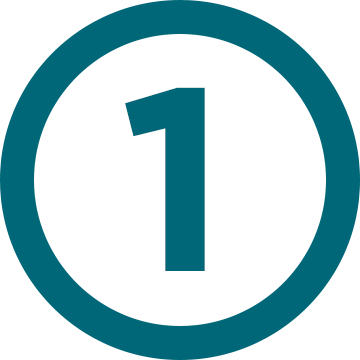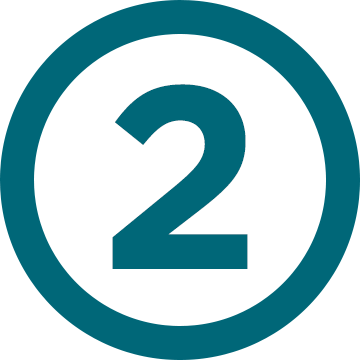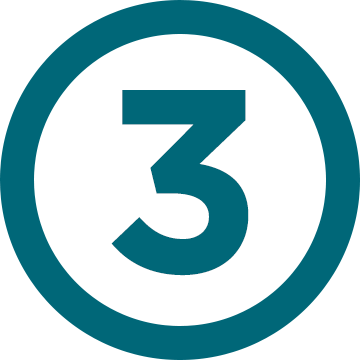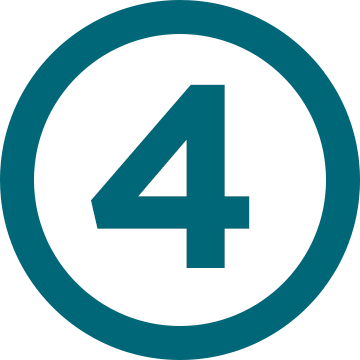CONNECT is JCCC's two-year transition program for young adults with intellectual/developmental disabilities, bridging the gap between high school and adulthood.
Check back in Fall 2026 for the next information night details.
Get the full college experience as a JCCC Cavalier!
CONNECT includes:
- Program-specific courses in life planning, career development and independent living
- On-campus internship opportunities
- Credit courses (for credit or audit)
- Continuing education courses
This is a selective admission program with an application process and fee (in addition to tuition). Spots are limited.
Graduates receive a continuing education certificate in Career Development and Leadership.
- Students must have been diagnosed with an intellectual or developmental disability or autism spectrum disorder, prior to the age of 18, as documented by either educational, medical, or psychological evaluations by a qualified professional.
- Students must be currently or were formerly eligible for special education and related services under the Individuals with Disabilities Education Act (IDEA), including a student who was determined eligible and was home-schooled or attended private school.
- Students must demonstrate a high level of independence and emotional maturity:
- Ability to administer medications, manage medical conditions and administer self-care without assistance.
- Capable of navigating the JCCC campus with minimal assistance.
- Ability to complete the interview process for acceptance without the assistance of a parent/guardian.
- Free from behaviors that would be disruptive to the learning and campus environment, including physical or verbal aggression.
- Demonstrate the ability to appropriately interact with peers and follow guidelines, including the JCCC Student Code of Conduct.
- Able to communicate with others verbally, through sign language or communication device with enough expressive language to advocate for themselves in both routine and unplanned situations (i.e., lost on campus, medical emergency, etc.).
- Ability to remain unsupervised for a minimum of four hours.
- Ability to attend scheduled courses independently.
- Ability to manage college level tasks (scheduling, meeting with advisors/counselors, meeting with professors, etc.) independently.
- Students must demonstrate independently a desire to pursue educational, employment and social experiences in a community college setting, including agreeing to attend and participate in all CONNECT courses and activities as prescribed.
- Participants must possess basic literacy and numeracy skills sufficient for everyday college-level tasks, such as reading directions, completing forms, and performing practical math calculations.
Due to the number of contact hours required each semester, all admitted CONNECT students will have exited all services with their K-12 schools, including any 18-21 programming, prior to beginning CONNECT.
Step 1: Complete the application and submit by the deadline.
Each applicant should follow the steps given on the webpage to submit the application materials by the assigned deadline. Applications will be open each year from January 1 until February 15. Each applicant should follow the steps given on the webpage to submit the application materials by the assigned deadline. Application materials will only appear on the webpage during the open application period.
Step 2: Packet Review
Each application packet, including references, will be reviewed by the Programs Director to ensure that the applicant meets the admissions criteria, that the application is complete and that it was received by the required deadline. All applications meeting these requirements will move forward to step three.
Step 3: Admissions Committee Review
An Admissions Committee, comprised of Supported Education and related departmental staff (Counseling, Access Services, etc.) will review, score, and rank applications to move forward to step four. Three categories will be given priority consideration in this step: applications submitted by the priority deadline, Johnson County residents, and applicants who have previously taken CLEAR classes through JCCC.
Step 4: Interview
Applicants will attend a personal interview with Supported Education staff.
Step 5: Admissions Decision
Chosen applicants will be notified by email in early April about their acceptance into the CONNECT program.
During the application and selection process, members of the Supported Education staff will be unable to answer any questions about the status of your application. After each step is completed, you will receive an e-mail with any further information needed and/or letting you know if your application has moved forward to the next step. If your application has not moved forward, you will be given suggestions and alternatives to strengthen skills and your application for future processes. All communication regarding the process will occur via e-mail and will be e-mailed to the address listed as the student's personal e-mail.
- Gather your official documentation in electronic form:
- Most recent Individualized Education Plan (IEP): this is REQUIRED of all applicants
- Documentation of official diagnosis of intellectual or developmental disability: This could be an educational, psychological, or medical evaluation and may be from early childhood. If the submitted IEP CLEARLY lists the student’s official diagnosis of intellectual or developmental disability, no further documentation is needed.
- Copy of legal guardianship order if the student is not their own legal guardian (or will not be when they turn 18).
- Gather your basic demographic information: The application asks basic demographic information such as social security number, race, ethnicity, home address, length of time at current address, etc. Some of these items are required.
- Gather a parent/guardian email address: Parents/guardians have a section of the application to complete as well as the student. The student must input the parent/guardian email into the application form for the parent section to be sent. The email address must be input correctly.
- Gather the names and email addresses for three references: One reference must be educational (a teacher, para, job coach, etc.), one must be an employment or activity reference (supervisor, sponsor, volunteer coordinator, etc.), and one reference of your choice. All references should be non-family members. References should be notified that they will be asked to complete an emailed reference form.
Each semester, students will pay a $550 CONNECT program fee. This fee covers the cost of the CONNECT specific courses and peer mentorship hours.
Students are also responsible for paying standard JCCC tuition rates for any credit or continuing education elective courses they are taking. Reference standard JCCC tuition rates.
Semester 1 - Fall
- Transition Success Strategies: Students will learn and practice essential skills for college success, including self-advocacy, time management, organization, written communication, and self-determination.
- Roadmap to Independence: This course utilizes the Charting the LifeCourse framework to help students design their vision of an independent life. The framework explores many life domains including daily living, employment, and relationships.
Semester 2 - Spring
- Food, Nutrition and Wellness: Students will learn the basics f healthy living. Topics include simple cooking methods, nutrition basics, movement and exercise and personal self-care habits in this hands-on course.
- PEERS: Improving Relationships: Students will explore skills in understanding others and building lasting positive relationships. Using the PEERS for Young Adults curriculum, skills such as active listening, identifying diverse social norms, and giving and receiving feedback will be covered.
Semester 3 - Fall
- Internship I: During this course, students will prepare for their first on campus internship. Students will take interest and strengths surveys and explore career areas of interest. Internships will take place outside of class time.
- Technology Tools: Students will learn the skills to engage confidently in a technology-driven world. Explore practical applications of technology in daily life, the workplace and transportation while developing strategies for protecting privacy and maintaining digital well-being.
Semester 4 - Spring
- Financial Literacy: Gain the skills needed for managing personal finances: creating a budget, banking, credit and debit cards, and savvy shopping including hidden costs. Gain understanding of paycheck and tax information.
- Internship II: During this course, students will prepare for their second on campus internship and create a plan for competitive employment after college. Students will learn interviewing skills, resume writing, and job search skills. Internships will take place outside of class time.
All semesters
- Academic Intervention (AI): Students receive weekly support in both academics and social development. Practice social skills with peers and mentors, receive help with homework and test preparation, and get timely updates on program requirements. Foster stronger academic habits, improved self-advocacy, and smoother navigation of college life. Meets on Wednesdays only from 12:15 p.m.-1 p.m. each semester of the program.
CONNECT uses the principles of Guided Pathways to place students on one of two paths regarding their program of study:
1. Vocational Pathway
Students on this pathway are looking to complete the CONNECT certificate and then enter the workforce. Elective courses will focus on continuing education courses and credit courses for audit to develop workforce skills in areas of interest. Some credit courses may be taken for credit on this pathway with the approval of the program advisor.
2. Transition to AA Pathway
Students on this pathway are looking to complete a traditional degree at JCCC in addition to completing their CONNECT certificate. Elective courses will be focused on credit courses required for their chosen degree path.
Pathways will be determined during the person-centered planning process that begins during the summer prior to the program start.

Mark Brimmerman, left, with Jean Claude Cavalier and fellow CONNECT graduates in May 2025.
Read Mark's story about the CONNECT program
Follow along with CONNECT student Noah as he walks us through a week on campus.

Create a Dynamic Forms Account
- Use a personal email (Yahoo, Gmail, etc.) to create your account.
- DO NOT use a high school email – high school firewalls will likely block the activation email.
- Save your username and password – you’ll need both to complete the application in Step 3.
Create your Dynamic Forms account
Note: If you repeatedly get an error when creating an account, your email address may already be in the Dynamic Forms system. Try resetting your Dynamic Forms password, then proceed to step 3.

Verify Your Dynamic Forms Account
Open the “Activate your account” email from Dynamic Forms on the same device used to create the account. Check your junk email folder if you don’t see the activation email in your inbox.

Complete and Submit Your Application
Complete your CONNECT application
Don't have time to complete the entire application? No problem; the system will save your work. You can return later to complete it by visiting this link.

Parent/Guardians Complete and Submit the Parent CONNECT Application
Parents/Guardians will receive an email containing the link to complete their portion of the application after the student submits their form. It will be sent to the email address listed as the parent email on the Personal Data page of the student application. Parents will be prompted to create a Dynamic Forms account as listed in Step 1 before completing their form.
Applications are not considered submitted until both the student and parent sections have been completed and submitted. Both sections must be complete by the deadlines for consideration.
Priority consideration: January 31
Final deadline: February 15
